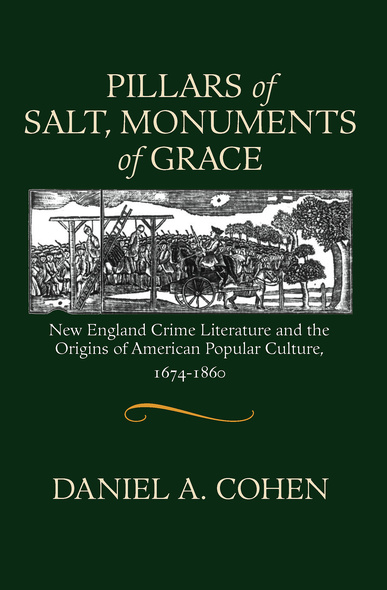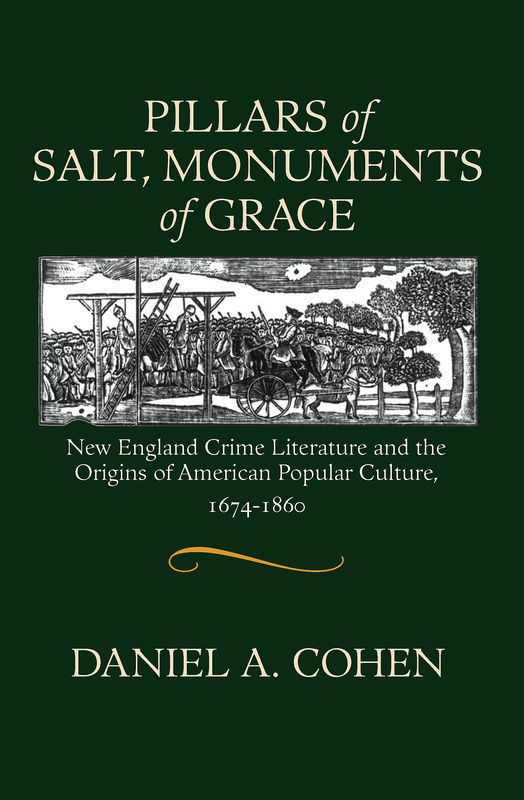Pillars of Salt, Monuments of Grace
New England Crime Literature and the Origins of American Popular Culture, 1674-1860
University of Massachusetts Press
In this innovative study, Daniel A. Cohen explores a major cultural shift embodied in hundreds of early New England crime publications. Tracing the declining authority of Puritan ministers, he shows how the arbiters of an increasingly pluralistic literary marketplace gradually supplanted pious execution sermons with last-speech broadsides, gallows verses, criminal autobiographies, trial reports, newspaper stories, and romantic docudramas. Pillars of Salt, Monuments of Grace probes the forgotten origins of our modern mass media's preoccupation with crime and punishment.
Brilliantly connects changes in American social structure with corresponding shifts in epistemology. . . . Cohen's careful tracing of a single literary and cultural thread over nearly two centuries opens up a fresh view of the whole fabric of early American experience.'—William and Mary Quarterly
'A first-rate piece of historical scholarship, this book will be especially useful to students of print culture, the relationship between law and literature, and the figure of the criminal, but will profit all readers who are interested in American culture.'—American Literature
'The way New Englanders packaged and understood crime from the time of Increase Mather to the Civil War superbly illustrates the general evolution of New England culture and helps illuminate via comparison our contemporary understanding of crime and criminal justice.'—Law and History Review
'Provides fresh examinations of the central developments of New England society and culture: its growing secularization, the displacement of clerical by legal authority, the region's increasing social and ethnic diversity, the intensification of class and social conflicts, the spread of Enlightenment ideals, and, most fascinating, the symbiotic relationship among romanticism, legal authority, and popular culture in the nineteenth century.'—Journal of American History
'Daniel Cohen's literate, engaging study combines analysis and insight to probe the changing meanings of crime and punishment in the print culture of New England before the Civil War. . . . an always absorbing book.'—New England Quarterly
'A marvelously written and engaging book, Pillars of Salt, Monuments of Grace is a significant contribution to the social and cultural history of early America, but its implications extend far beyond. A truly interdisciplinary mix of cultural, social, legal, religious, gender, and literary history, it should be read by any scholars whose interests touch those fields.'—Journal of Social History
'With admirable industry and zeal, Cohen surveys the rise of the 'True Crime' tradition in American literature—from Increase Mather's first execution sermon in 1674, to the eve of the Civil War. . . . This is a thorough and richly descriptive book— informative, clearly written, and suggestive both about the temper of the times with which it is concerned and about a literary form that has continued to evolve into the mass market of our own time.'—Common Knowledge
'More than a decade later, this monograph remains an indispensable account of Americans' abiding fascination with criminals and their stories.'—Itinerario
Daniel A. Cohen is associate professor of history at Case Western Reserve University.





